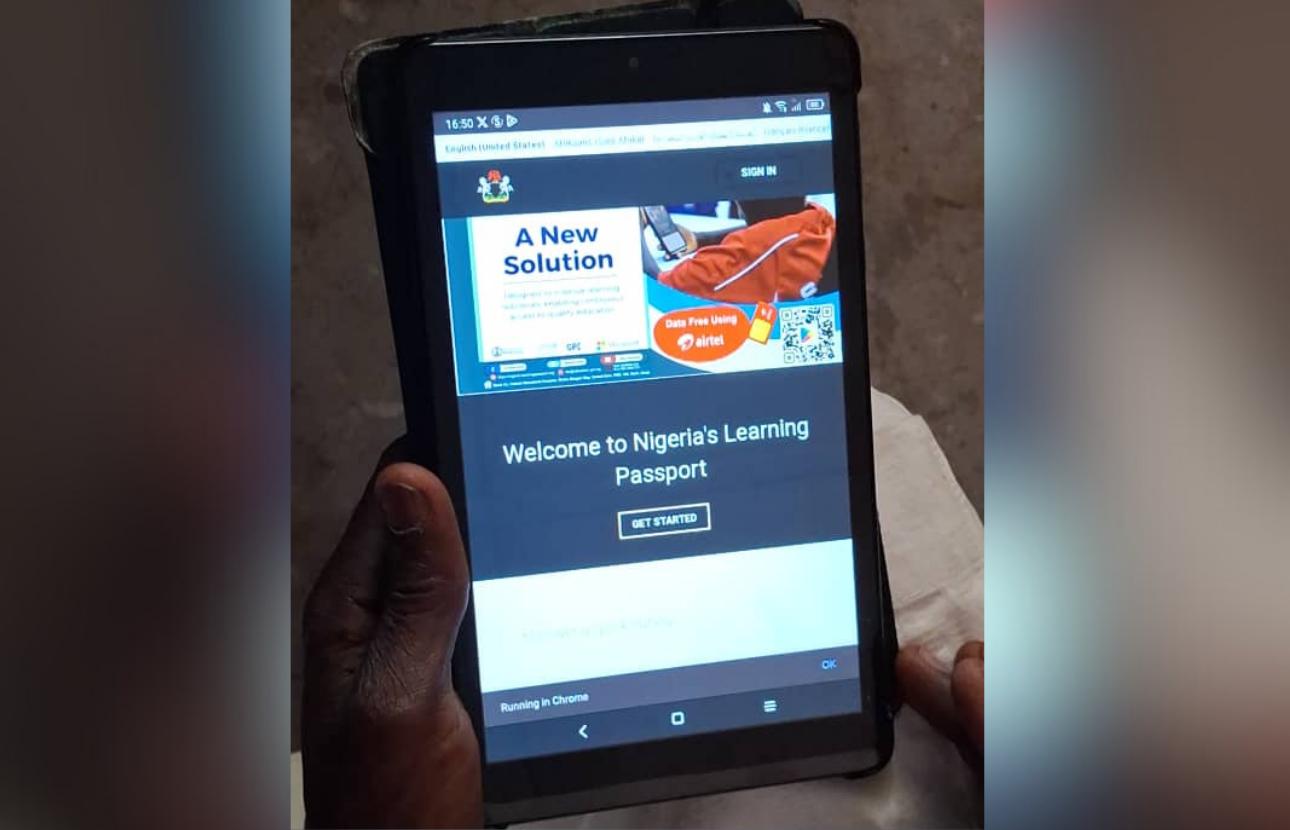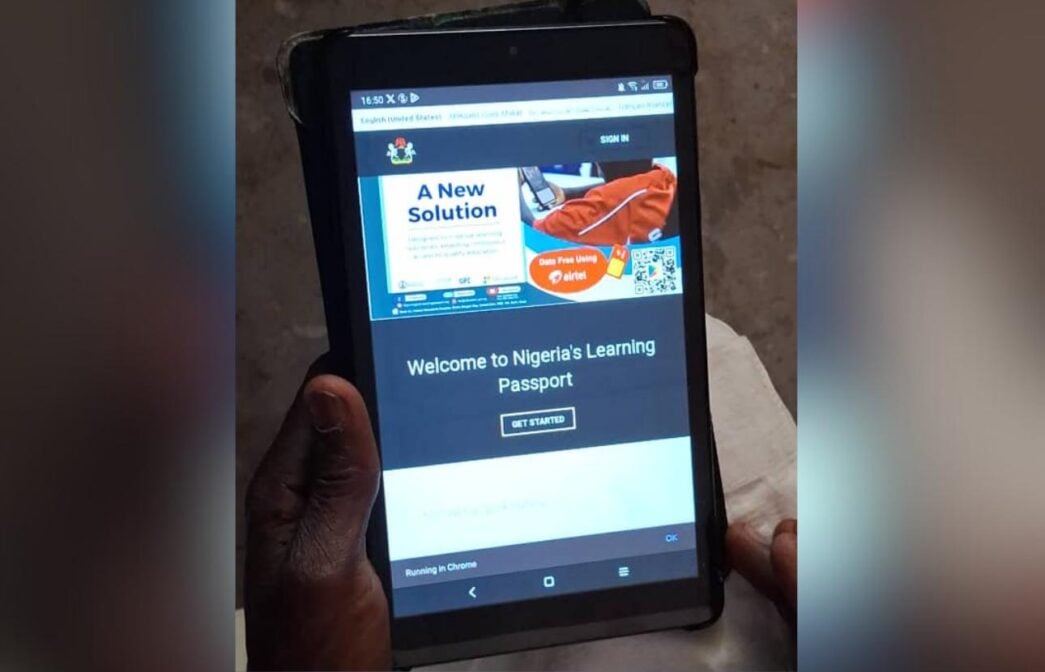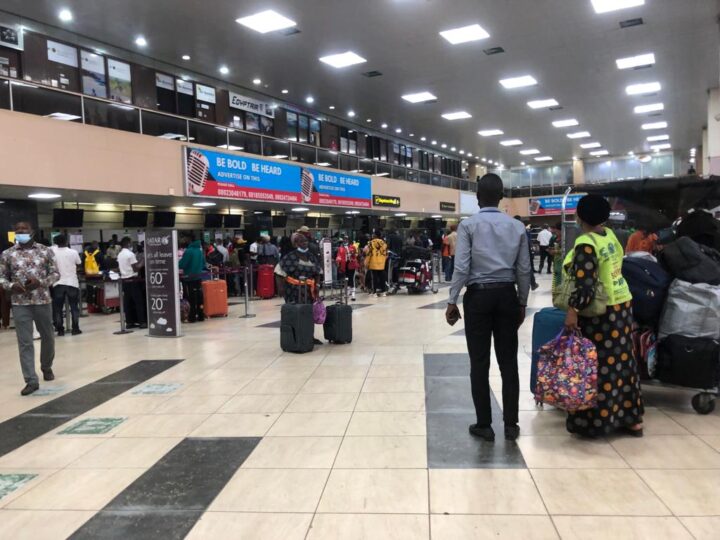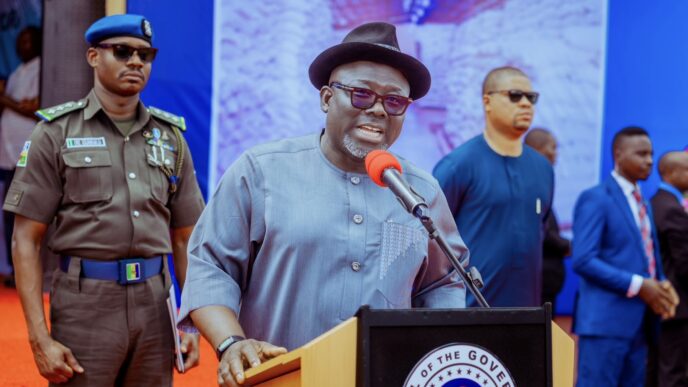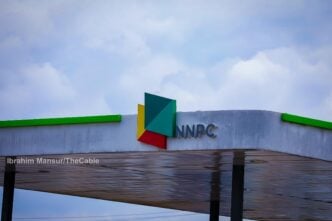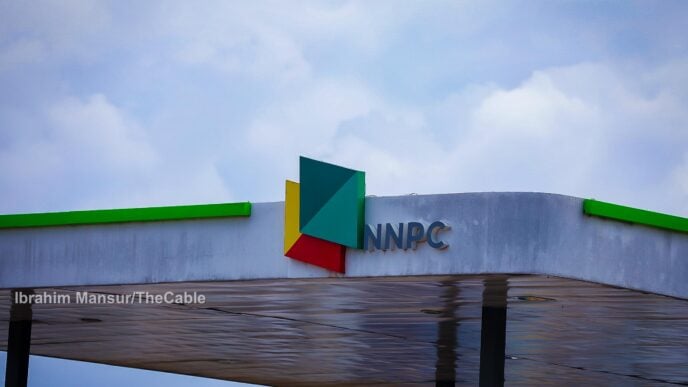The interface of the Nigerian Learning Passport (NLP) portal
When the holy month of Ramadan began in 2025, Nigerians were greeted with an unexpected announcement: four northern states — Bauchi, Katsina, Kano, and Kebbi — ordered all public and private schools shut for five weeks to allow students and teachers to observe the religious fast.
For many in northern Nigeria — a region already burdened by insecurity, poverty, and deeply rooted cultural norms — it was the first time an entire academic calendar had been paused this long purely for religious reasons. The state governments explained the decision as a way to “help students and teachers rest, reflect, and reconnect spiritually”.
But for educators and rights advocates, the move raised serious concerns about learning loss in a region already struggling to keep children in school.
Kebbi has the highest number of out-of-school children, with 67.6%. Bauchi ranks 5th with 55.7%, Katsina comes 9th with 45.9%, and Kano takes 11th place with 39.2%, according to a national education report. These four states are at the heart of Nigeria’s education crisis.
Advertisement
Still, not everyone saw the shutdown as the end of learning.
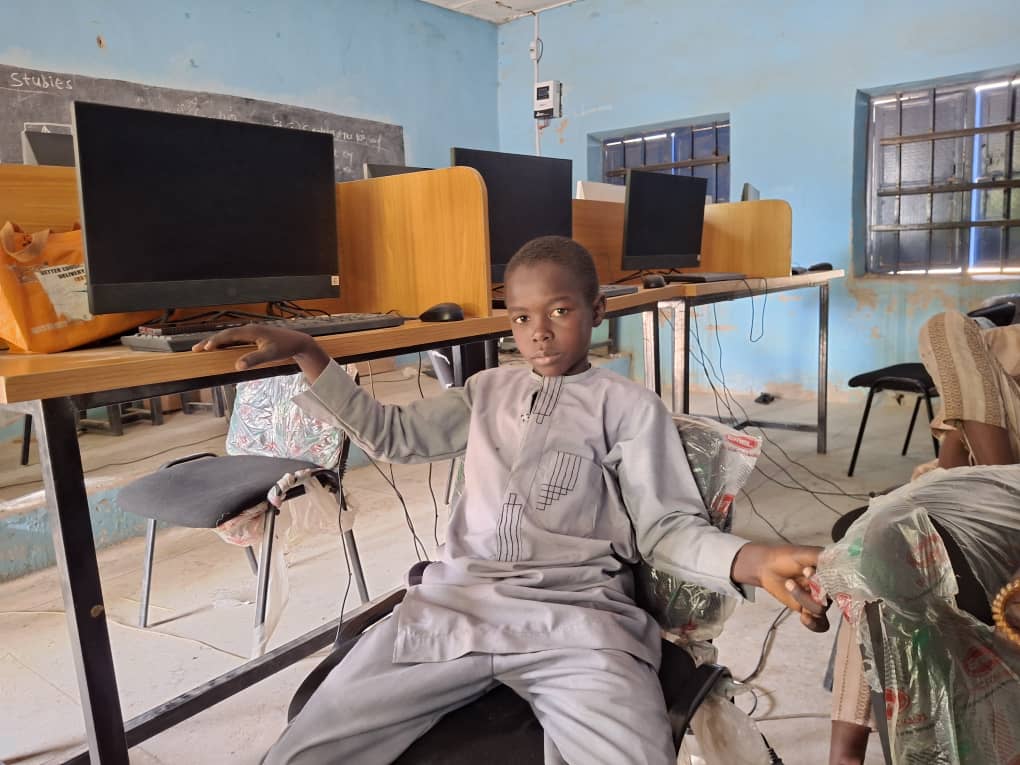
While his classmates took time off when schools shut their gates, 12-year-old Abubakar Audu, a year five pupil at Abdulkadir Ahmed Primary School in Jama’are LGA, Bauchi state, remained connected to his studies.
In the quiet of his family home, Audu would log onto the Nigerian Learning Passport (NLP) — a digital platform filled with lessons, videos, and quizzes — using a tablet owned by his father, who also happens to be the school’s assistant headmaster.
Advertisement
“I used the NLP in our home even during fasting. My father is the assistant headmaster of my school. He has a tablet. I’d take the tablet and log in to learn. He usually guides me,” Audu said.
“I learn almost everything from it and it helps me understand things very well. Even when school is in session, I prefer learning with the phone than in a class. So, after closing hours when I go back home, I take my father’s phone and read again so that I can understand well.”
Audu’s story offers a glimpse into the growing potential of Nigeria’s digital education efforts, especially in underserved regions where classroom learning is regularly disrupted.
According to UNICEF, Nigeria has the highest number of out-of-school children in the world at 18.5 million. Most of these children live in the north, where poverty, cultural barriers, and attacks on schools have made education difficult to access and even dangerous.
Advertisement
To address this crisis, the Nigerian government, in partnership with UNICEF and other stakeholders, launched the Nigerian Learning Passport in 2022. The platform provides free access to an extensive library of educational materials aligned with the national curriculum from early childhood to secondary school.
Since its launch, the platform has expanded to 21 states, reaching over 1.8 million users.
Like Abubakar, 13-year-old Yusuf Salisu, a year six pupil, said he also used the platform during Ramadan using his parents’ Android phone.
“I still prefer learning in class,” he said. “But the NLP helps me understand better.”
Advertisement
Their teacher, Adamu Shuaibu, agrees. One of the 68,000 teachers trained by UNICEF, he now uses NLP to supplement classroom lessons, while students are more engaged in the process.
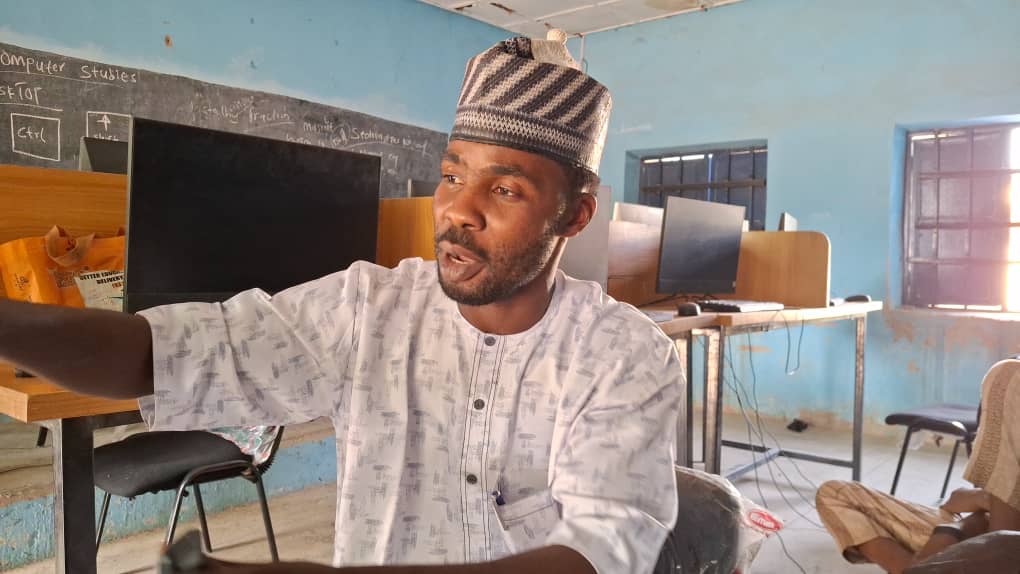
“The students pay more attention whenever I am delivering my lessons; in fact, they are even eager because they know I will show them something in the platform. There’s progress, they give attention because they want to see everything on the tablet,” the teacher said.
Advertisement
But Shuaibu also faces a major challenge: he has only one device, which he uses to go around the classroom, showing each student the lessons.
“I use just one tablet to deliver lessons. I have to go around the class and show each pupil,” he said.
Advertisement
Ahmad Kaigama, another teacher, said that although the initiative has improved digital literacy for students and teachers, it is expensive to sustain.
“From the training, they should have provided all necessary things for the programme, like a tablet for each teacher and data in order to make it successful,” he said.
Advertisement
“You know the country is hard now. Feeding your family now is a big deal, and also buying data to teach pupils — it won’t work. They should provide all these.
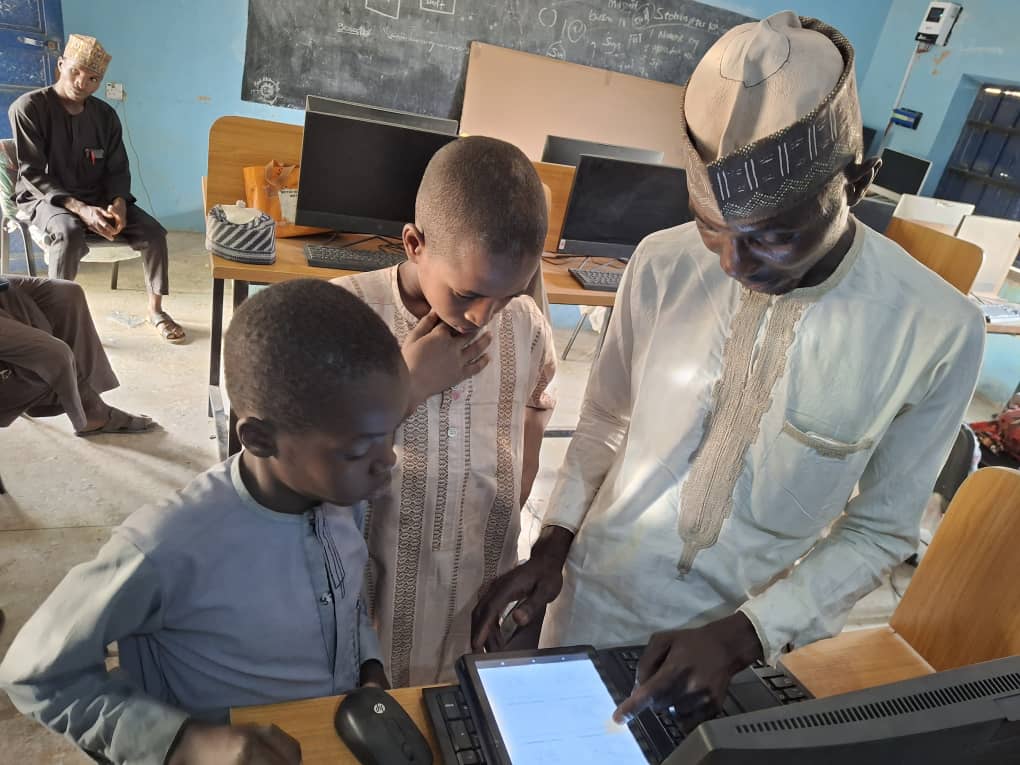
“I remember there was a time I was asked to register 2,000 pupils. I used my own data to do it.”
Kaigama also said periodic training to keep teachers up to speed with the latest updates is necessary.
STRONG GOVERNMENT SUPPORT AND POLICY ALIGNMENT
The federal government has played a pivotal role in the success of the NLP through strong policy alignment and active institutional support.
According to UNICEF, the federal ministry of education has integrated the NLP into national education policies and curricula, ensuring that the platform complements existing initiatives.
In addition, the ministry has established a dedicated technical team from its ICT department to oversee the NLP’s integration and sustainability. The government has also engaged over 200 decision-makers to deepen its commitment to digital learning at both the federal and state levels.
INCLUSION OF MARGINALISED GROUPS
Data available as of February 2025 shows that 47% of NLP users are female, highlighting the platform’s impact on gender inclusion.
“Focused efforts have been made to reach marginalised groups, particularly in northern Nigeria, where girls often face cultural and economic barriers to education,” a report by UNICEF read.
One key initiative, the Girls Employability and Skills Partnership (GESP), aims to equip girls and young people with work-ready skills by 2025 across four states — Katsina, Sokoto, Bauchi, and Lagos.
In 2024, UNICEF claimed the programme had reached 50,000 young people — twice its original goal — by integrating the Passport to Earning (P2E) programme with the NLP.
To address connectivity challenges, the platform also has an offline feature to enable users in unconnected communities and schools to access learning materials without the internet.
The initiative is also partnering with the private sector to tackle issues related to infrastructure, connectivity, and funding. UNICEF says Airtel provides affordable access to the NLP by offering zero-rated data (for Airtel users), allowing over 600,000 students to access the platform at no cost.
Additionally, with support from donors, a total of 13,500 tablets and 1,000 projectors have been distributed, ensuring that under-resourced schools across the country have the tools needed to fully access the platform.
THE FUTURE
Nigeria plans to expand the learning passport to reach 3.75 million users by 2027, adding six more states and extending access to unconnected schools through an offline model.
After listening to feedback from teachers and learners, UNICEF says: “The focus is also now on connecting more schools and enhancing learning outcomes for 80% of users, ensuring not just access but meaningful educational progress.”
“This will be achieved through ongoing content refinement and capacity-building for teachers. And advocacy efforts will remain a priority to achieve these goals, with continued collaboration among UNICEF, the government, private sector and other key stakeholders.”
This report is produced under the DPI Africa Journalism Fellowship Programme of the Media Foundation for West Africa and Co-Develop.
